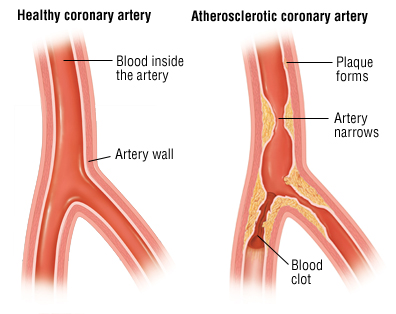Experts Provide Overview of Heart Problems in Athletes
- Category: General, Cardiology
- Posted On:
- Written By: Boulder Community Health

Boulder is considered one of the fittest communities in the nation. We have an impressive number of professional athletes from all fields and a multitude of recreational athletes, many who train and compete at an elite level.
But demanding workouts can trigger physiologic changes in the heart that can intensify an undetected heart problem. Without diagnosis and treatment, certain heart problems can be life threatening.
During a free health lecture held in Boulder, Drs. Samuel Aznaurov and Molly Ware, experts in treating all types of cardiovascular disease, provided an overview of how exercise can spark changes to the heart and heart-related problems that commonly impact athletes.
Changes to the Heart in Trained Athletes
Dr. Ware spoke about how athletes’ demanding workouts can trigger physiological changes to the heart, known as athlete’s heart, whereby the heart grows in size and has slightly thicker muscle walls.
These changes arise from an increase in heart rate and stroke volume (the amount of blood ejected from the heart with each heartbeat) during high-endurance activity. The heart adapts to the intense exercise so it can pump more blood per stroke. For the average individual, stroke volume can grow from 5 to 6 liters a minute at rest to 16 to 20 liters a minute during exercise. By comparison, stroke volume can increase up to 35 liters in well-trained athletes.
Exercise and Heart Problem Risk
Drs. Ware and Aznaurov then discussed potential exercise-related heart disease risks.
- Coronary Artery Disease (CAD) - Regular exercise helps strengthen the heart and lowers the long-term potential for cardiovascular problems. However, sudden strenuous exertion among usually sedentary people with atherosclerotic CAD (artery-clogging plaque buildup) can increase the immediate risk for heart attack. This is especially true for those already at higher-than-normal risk either because of age, genetic factors, high blood pressure and lifestyle.
 The majority of sedentary individuals who experience a heart attack during vigorous exercise are 45 to 55 years old. However, the likelihood of this occurring can decrease with regular physical activity.
The majority of sedentary individuals who experience a heart attack during vigorous exercise are 45 to 55 years old. However, the likelihood of this occurring can decrease with regular physical activity.
Masters endurance athletes are not immune to CAD. In fact, research shows that, compared to sedentary men, high-intensity male athletes have a higher level of plaque buildup in their arteries. Researchers think that different pathophysiological mechanisms cause more abundant plaque in male athletes. - Hypertrophic cardiomyopathy (HCM) - HCM is a genetic disease that causes the heart muscle to become abnormally thick and stiffen, making it harder for the heart to pump blood. It often goes undiagnosed because people with the condition may have no symptoms. However, the thickened heart muscle can lead to life-threatening complications, including:
- Sudden cardiac arrest. People with HCM have an increased risk of sudden cardiac arrest. Although deaths from sudden cardiac arrest are rare, HCM is thought to prompt 30 to 40 percent of such deaths in young athletes.
- Abnormal heartbeat (arrhythmia). The thickened heart muscle can disrupt the normal functioning of the heart’s electrical system, causing an irregular heartbeat called atrial fibrillation (AFib).
- Outflow tract obstruction. Thickened heart muscle from HCM can many times obstruct the blood flow leaving the heart, leading to shortness of breath with exertion, chest pain, dizziness and fainting spells.
- Arrhythmogenic (right) ventricular cardiomyopathy (ARVC) – A genetic condition, ARVC is a problem with the proteins that bind the heart's muscle cells together. This results in accelerated “wear and tear” of the muscle, causing the heart’s ventricles (lower pumping chambers) to become thin. ARVC can affect the electrical activity of the heart, leading to dangerous arrhythmias. About 20 percent of sudden death in young athletes result from ARVC.
Other concerning heart problems in athletes include:
- Heart valve problems, which can lead to heart failure.
- Aortic problems, which are usually caused by high blood pressure or genetic syndromes and can lead to dissection or rupture of the aorta.
Detecting — or Ruling Out — Heart Disease in Athletes
If you’re an athlete and experience any of the following symptoms, we encourage you to make an appointment with a Boulder Heart cardiologist:
- Fainting
- Chest pain or pressure
- Unusual shortness of breath
- Unusual heart racing/skipping
- Unexplained decline in exercise tolerance
Boulder Heart uses the latest heart technologies to diagnose potential heart problems in athletes such as an ECG, imaging workups, stress testing and echocardiogram. They can also evaluate whether your symptoms are related to physical activity or something more serious.
To make an appointment with a Boulder Heart cardiologist, call 303-442-2395.
Download PowerPoint slides from the lecture on “Recognizing and Treating Heart Problems in Athletes.”